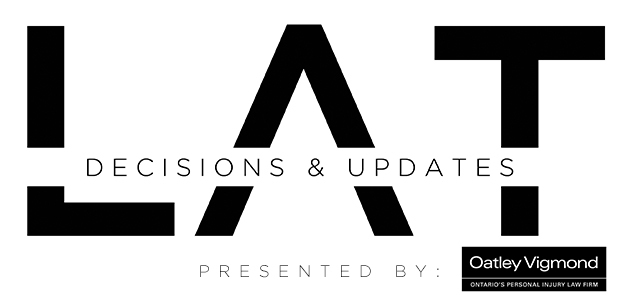V801 – Apprehension of Bias in Insurer Examination Reports

Insurer imposed examinations tend to have quite significant impact upon our clients. Such examinations are not only disruptive to routine, but they are often also perceived as being invasive, stressful, and frightening. Our clients often feel as though they are dismissed, rushed and not listened to in the course of being examined. Following examination, our clients are then left to experience many weeks of worry as to whether their claims for benefits may be discontinued or denied.
While insurer examinations can have positive outcomes, such as occurs when we receive reports that are fair and compassionate to our clients, such outcomes are not necessarily the norm. Indeed, our clients are sometimes devastated to receive reports that can only be viewed as being unfair, inaccurate and biased in nature. When this occurs, and when benefits are denied as a result, the disappointment and anger experienced by our clients, their families and their rehabilitation teams can be severe.
We presently highlight the LAT decision 17-004680 & 17-008472, Applicant and Aviva Insurance Canada. In this case, the applicant encountered a denial of treatment plan that proposed psychological treatment services. The denial was issued in despite of information that supported the need for service. This included a family physician’s recommendation for referral for psychotherapy, a psychological evaluation confirming somatic symptom disorder, PTSD and driver’s anxiety, as well as documentation of a provisional diagnosis of PTSD as confirmed by a psychiatrist.
The applicant was subjected to a psychological insurer examination which was performed by Dr. Louise Koepfler. The outcome was that Dr. Koepfler would not render diagnosis given her concern related to the test results and unreliability of the applicant’s self-reporting. She concluded she was unable to recommend psychological counselling and that the treatment plan was neither reasonable nor necessary. Aviva relied upon this report and maintained its denial of the service.
At hearing, Adjudicator Christopher A. Ferguson preferred the applicant’s evidence and found the psychology treatment plan to be reasonable and necessary. In coming to this conclusion, he highlighted concern as related to Dr. Koepfler’s insurer examination report. He stated as follows:
“I have decided to give less weight on Dr. Koepfler’s report because some of its contents create, in my mind, an apprehension of bias against the applicant:
i. At page 10 of her report, Dr. Koepfler remarks that “Expectation of a financial settlement may also be motivating her [i.e. the applicant] to over-endorse symptoms on today’s assessment.” I find this to be speculative at best, and inconsistent with the scientific accuracy expected of a medical report.
ii. Dr. Koepfler’s remarks appear to be driven by the applicant’s history, which she notes at p.9 includes an earlier accident, in 2011, which involved “a similar mechanism of injury” and which, as in the 2015 accident, included a miscarriage shortly afterwards. Dr. Koepfler notes that the applicant reached a settlement of the claims related to the 2011 accident. Linked as this observation is to the above-noted remarks, as well as the groundless intimation that such an accident couldn’t happen twice, I am again struck by the consideration of factors that are both speculative and outside of her medical expertise .
When an insurer examination report is received, be it by an adjuster, client, healthcare professional, or legal representative, it should be carefully reviewed for content and for the possibility of bias. Such a review requires front to back reading, a considerate mind, and attention to detail. We hope that insurers that rely upon insurer examination reports will issue determinations of benefits conscientiously and that disputes such as that above may be less frequently encountered in the claims industry in future.
Official Decision:
17-004680 and 17-008472, Applicant and Aviva Insurance Canada
